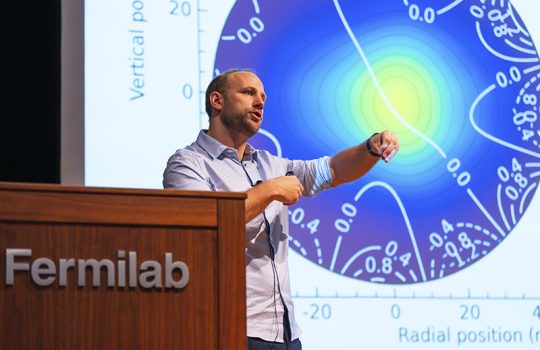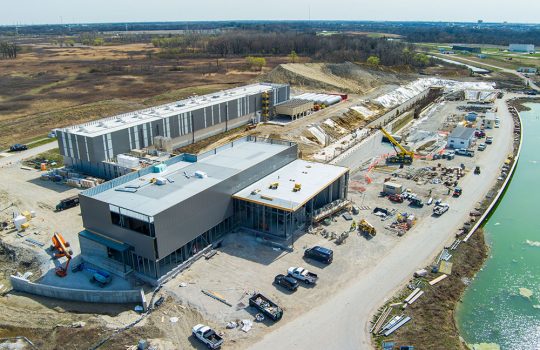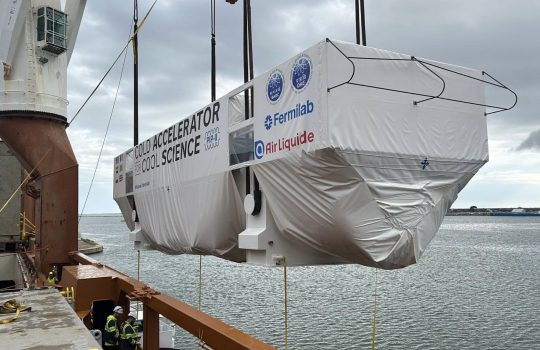The U.S. Department of Energy’s Fermi National Accelerator Laboratory signed a project planning document with the Wrocław University of Science and Technology in Poland. With the signing, WUST officially joined the global collaboration working on Fermilab’s Proton Improvement Plan-II, known as the PIP-II project.
PIP-II is an upgrade of Fermilab’s accelerator complex that includes a new linear accelerator. It is an essential enhancement that will power the world’s most intense high-energy neutrino beam for the international Deep Underground Neutrino Experiment at the Long-Baseline Neutrino Facility hosted by Fermilab. PIP-II will provide the international particle physics community with a world-class scientific facility that will enable discovery-focused research, transform our understanding of nature and strengthen the connection between advances in fundamental science and technology innovation.

Rector Professor Arkadiusz Wójs, Wrocław University of Science and Technology, and Fermilab Director Nigel Lockyer signed the project planning document for work on the PIP-II particle accelerator project.
WUST joins a long list of PIP-II’s global collaborators that includes 11 institutions in France, India, Italy, Poland and the United Kingdom as well as four national labs. Funded primarily by the U.S. Department of Energy, PIP-II is the first particle accelerator built in the United States with significant contributions from international partners.
WUST’s contributions to PIP-II build upon the university’s expertise in cryogenics and next-generation superconducting accelerator technologies—key components to PIP-II’s superconducting linear accelerator. Having previously contributed to the European X-FEL and European Spallation Source projects, WUST plans to contribute design and hardware for the cryogenic transfer lines for the 215-meter-long PIP-II accelerator.
“WUST has a longstanding record of successful contribution to international scientific projects around the world,” said Arkadiy Klebaner, PIP-II technical director. “We are grateful to our Polish partners for their world-class expertise, contribution and support in building a state-of-the-art particle accelerator that will power the neutrino beam for DUNE and enable scientific discoveries for decades to come.”
“The cryogenic team at WUST is highly motivated to contribute to the PIP-II accelerator,” said Professor Maciej Chorowski, initiator of the university’s involvement in the development of the PIP-II cryogenic system. “We appreciate both the technical challenge and the international character of this prestigious project.”
Fermi National Accelerator Laboratory is supported by the Office of Science of the U.S. Department of Energy. The Office of Science is the single largest supporter of basic research in the physical sciences in the United States and is working to address some of the most pressing challenges of our time. For more information, please visit science.energy.gov.



